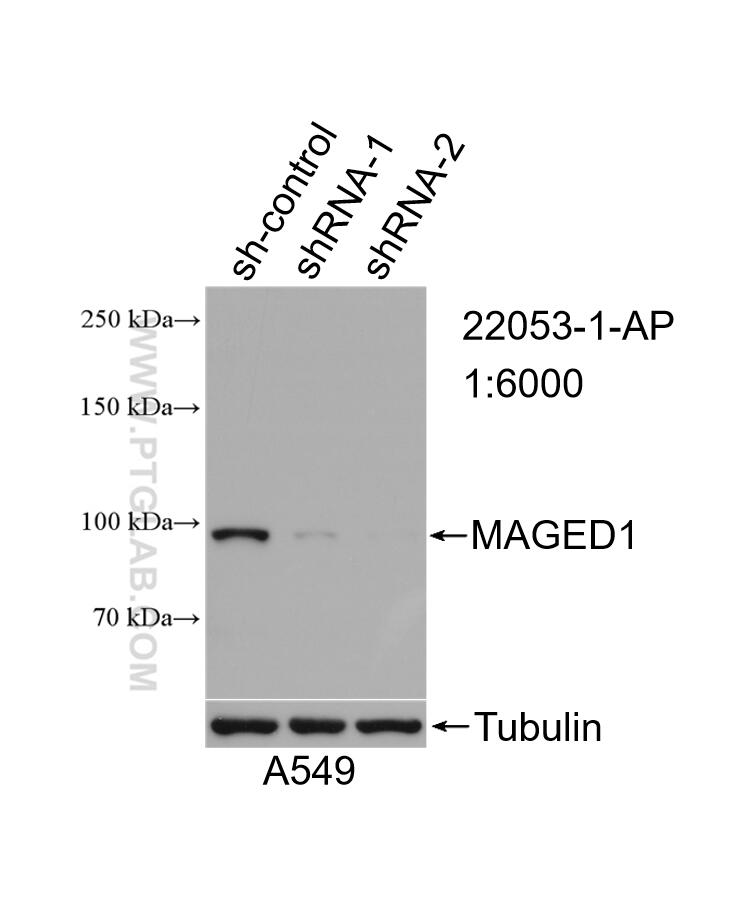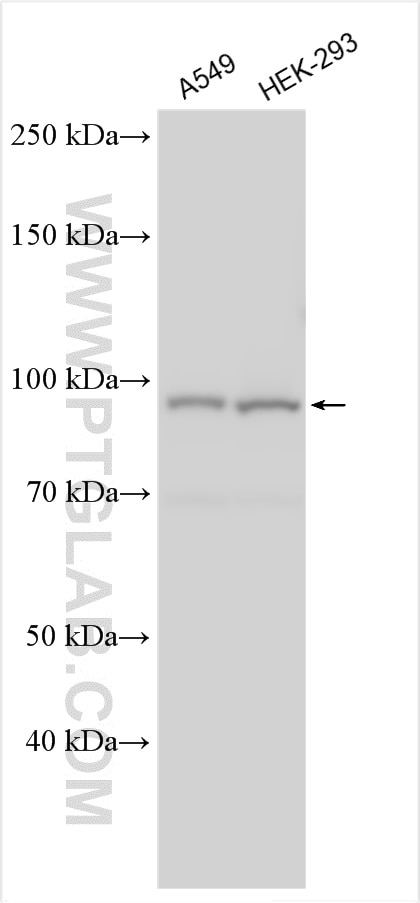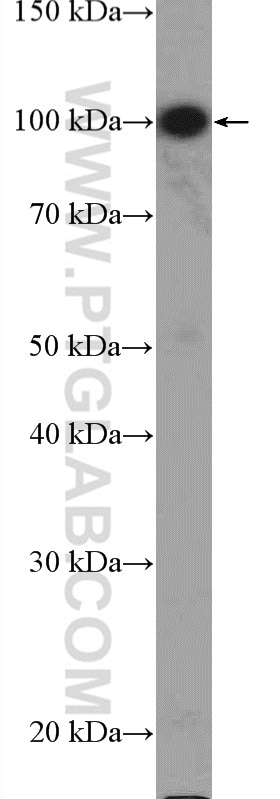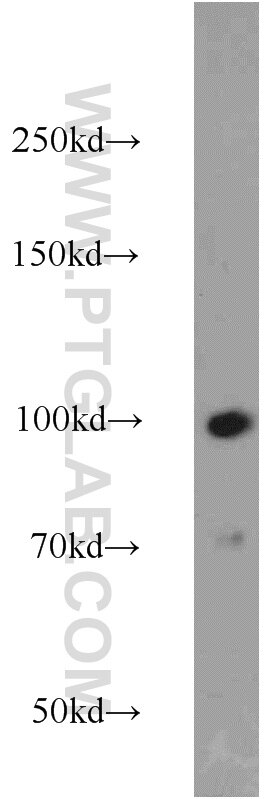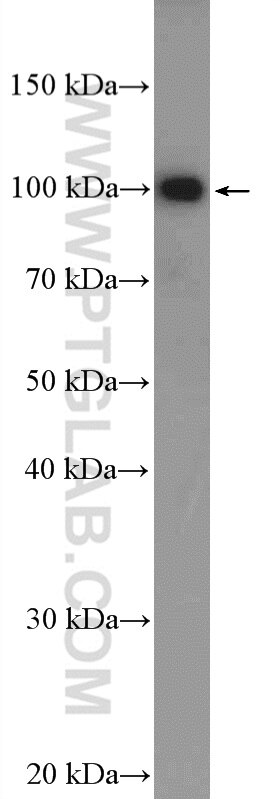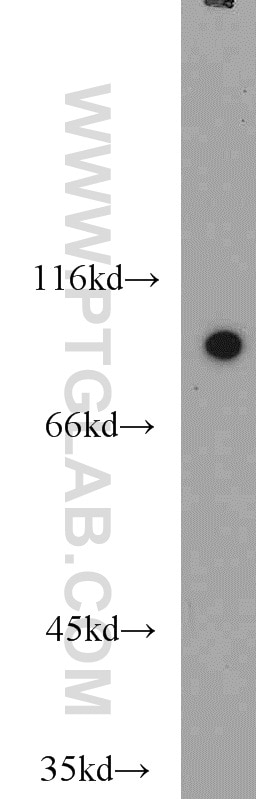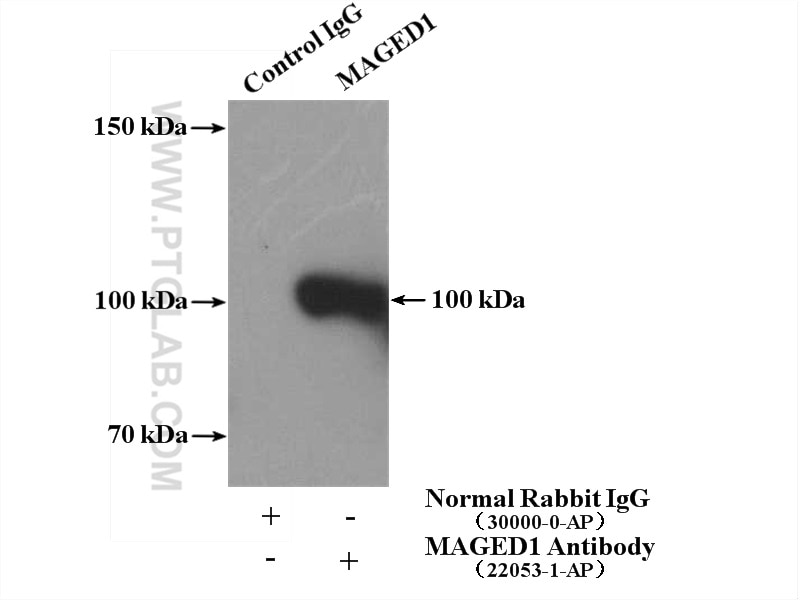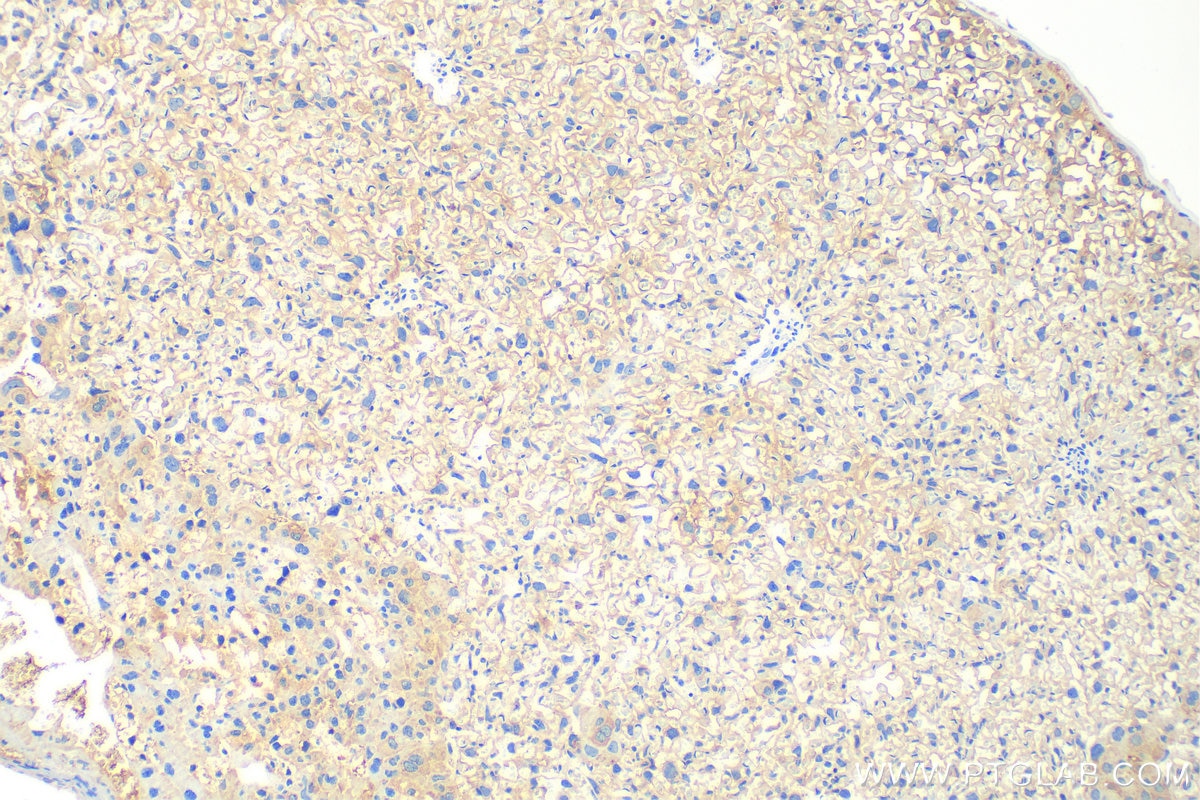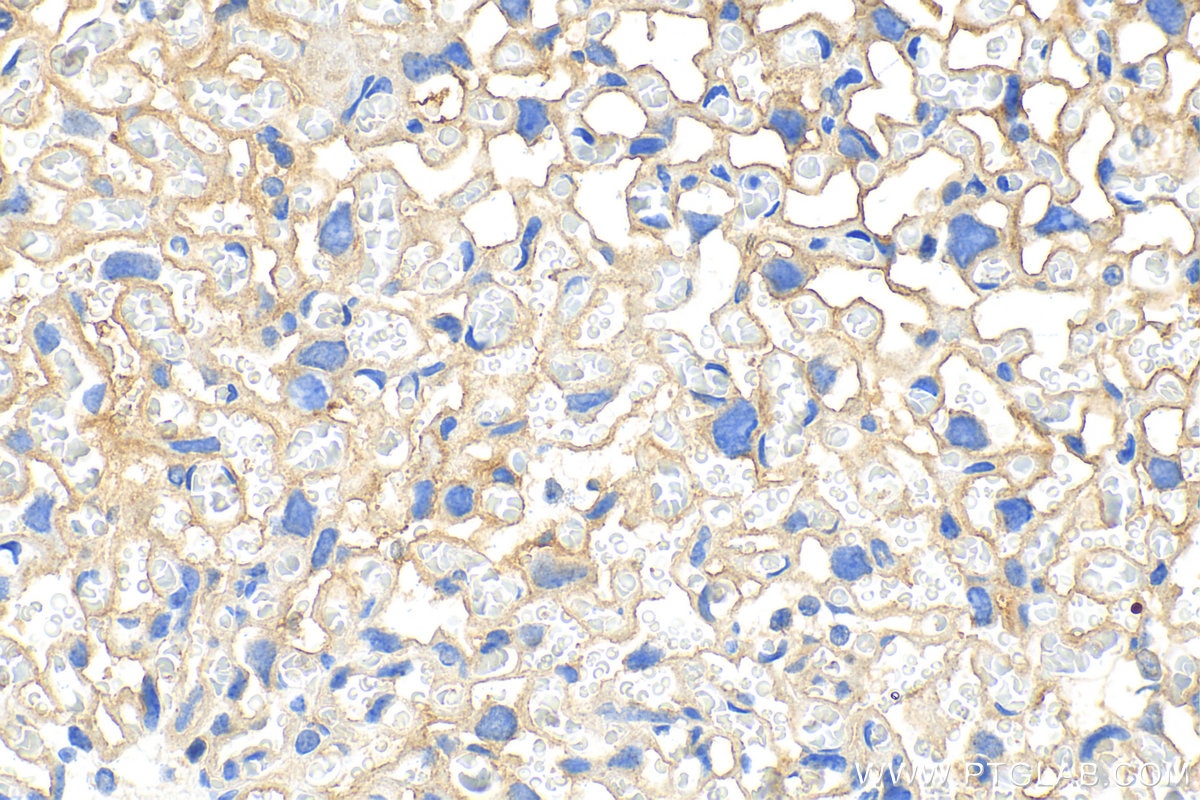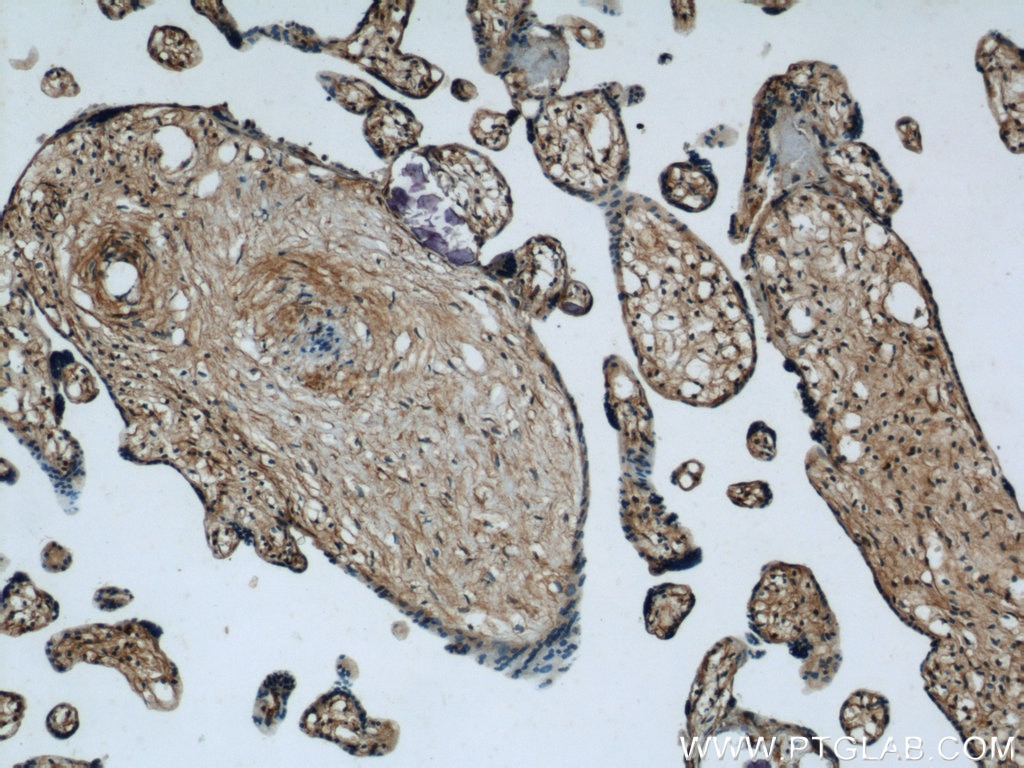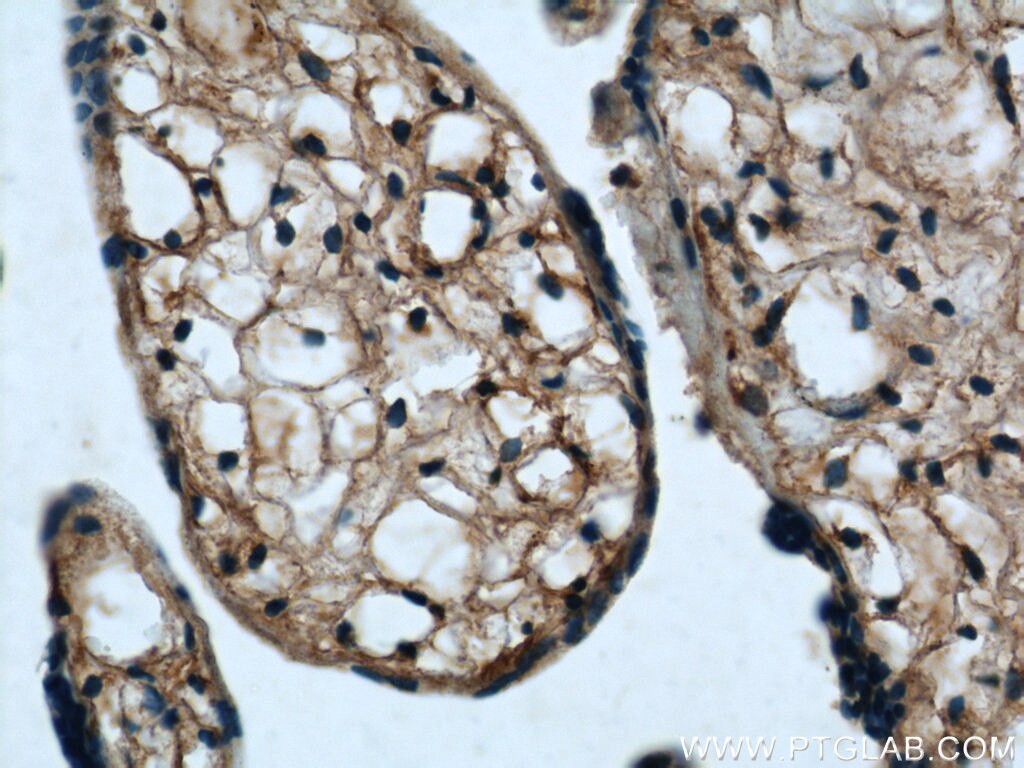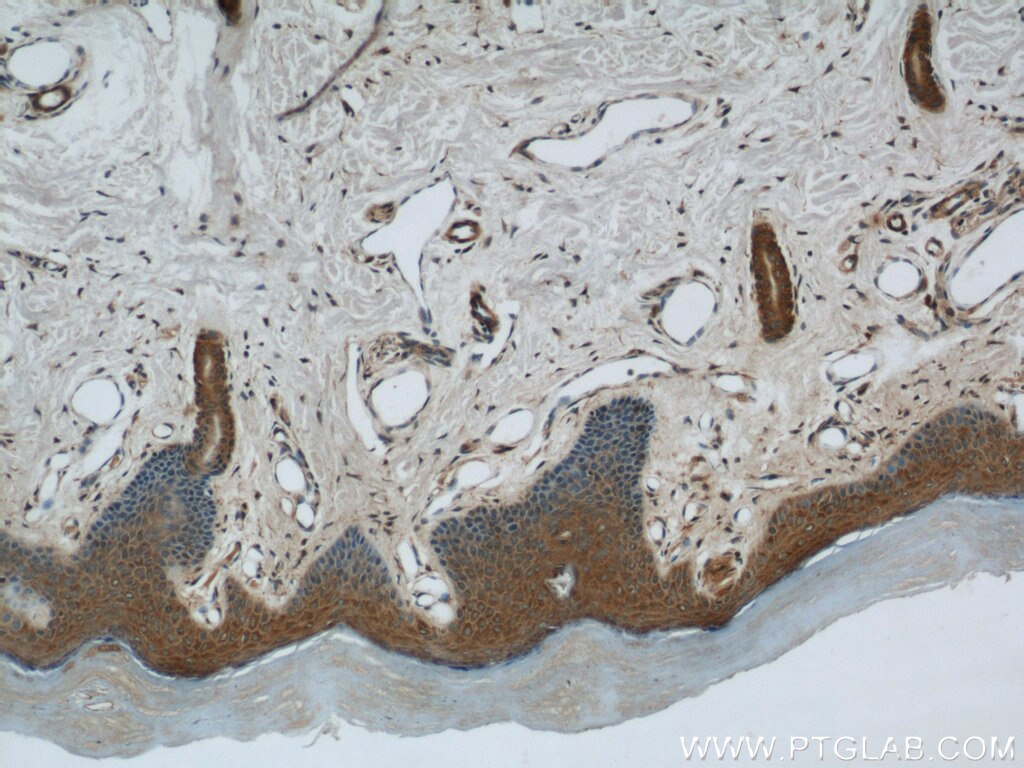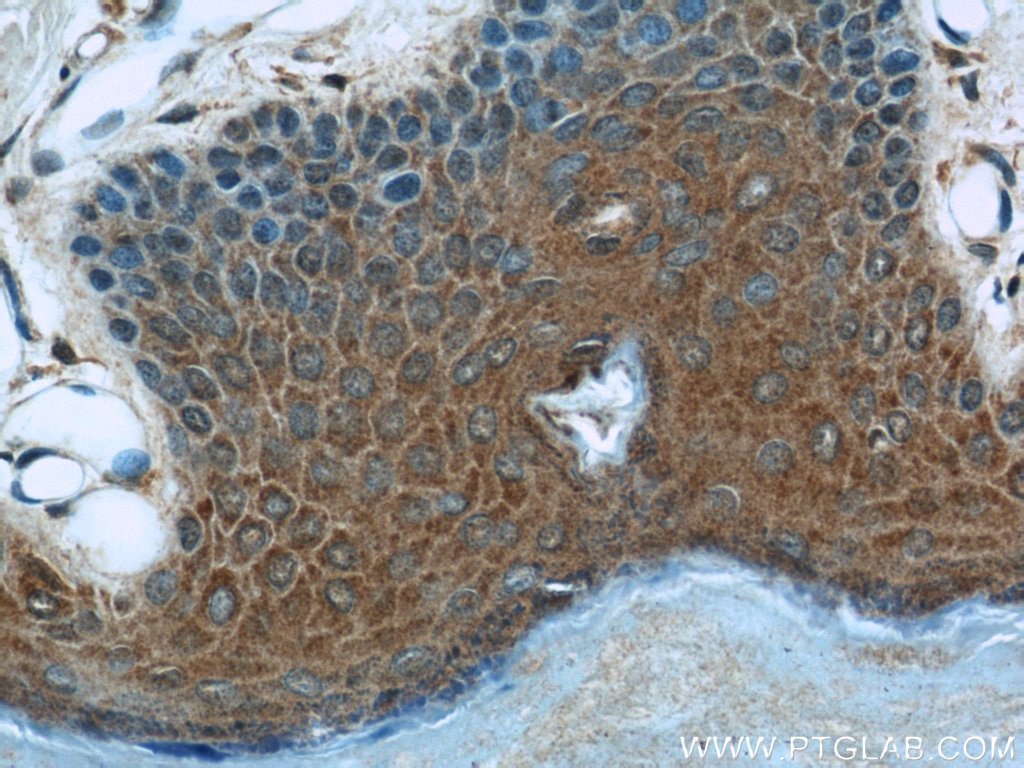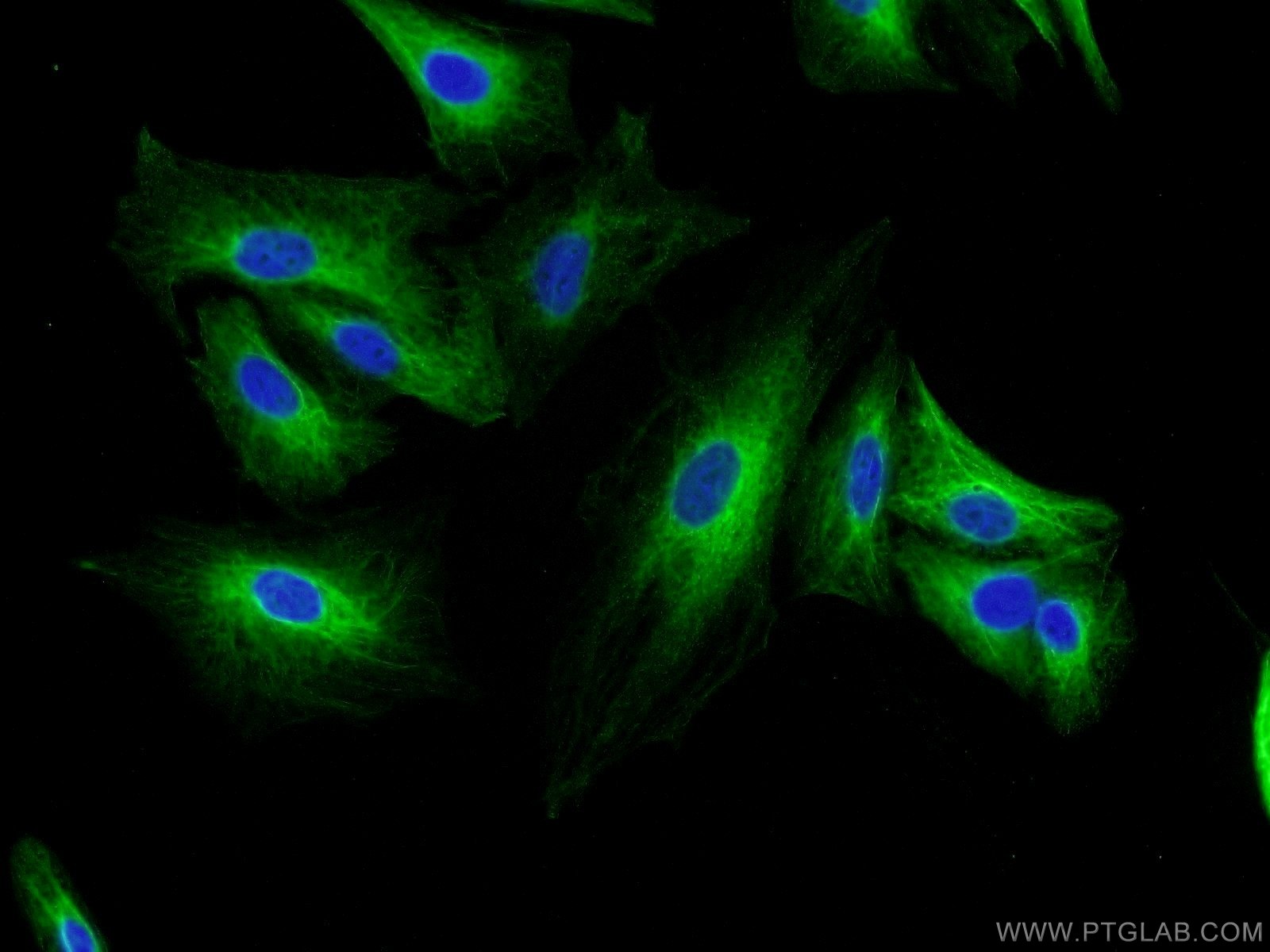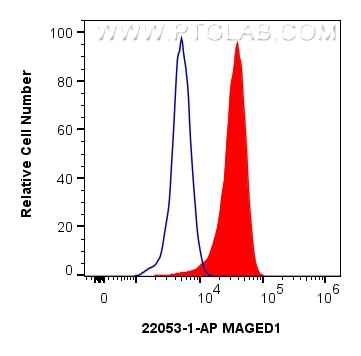Tested Applications
| Positive WB detected in | A549 cells, HEK-293 cells, mouse placenta tissue |
| Positive IP detected in | A549 cells |
| Positive IHC detected in | mouse placenta tissue, human skin tissue, human placenta tissue Note: suggested antigen retrieval with TE buffer pH 9.0; (*) Alternatively, antigen retrieval may be performed with citrate buffer pH 6.0 |
| Positive IF/ICC detected in | A549 cells |
| Positive FC (Intra) detected in | HeLa cells |
Recommended dilution
| Application | Dilution |
|---|---|
| Western Blot (WB) | WB : 1:2000-1:12000 |
| Immunoprecipitation (IP) | IP : 0.5-4.0 ug for 1.0-3.0 mg of total protein lysate |
| Immunohistochemistry (IHC) | IHC : 1:200-1:800 |
| Immunofluorescence (IF)/ICC | IF/ICC : 1:20-1:200 |
| Flow Cytometry (FC) (INTRA) | FC (INTRA) : 0.25 ug per 10^6 cells in a 100 µl suspension |
| It is recommended that this reagent should be titrated in each testing system to obtain optimal results. | |
| Sample-dependent, Check data in validation data gallery. | |
Published Applications
| KD/KO | See 2 publications below |
| WB | See 6 publications below |
| IHC | See 2 publications below |
| IF | See 1 publications below |
Product Information
22053-1-AP targets MAGED1 in WB, IHC, IF/ICC, FC (Intra), IP, ELISA applications and shows reactivity with human, mouse samples.
| Tested Reactivity | human, mouse |
| Cited Reactivity | human, mouse |
| Host / Isotype | Rabbit / IgG |
| Class | Polyclonal |
| Type | Antibody |
| Immunogen |
CatNo: Ag17047 Product name: Recombinant human MAGED1 protein Source: e coli.-derived, PGEX-4T Tag: GST Domain: 1-346 aa of BC014070 Sequence: MAQKMDCGAGLLGFQNPDACRAVCHPLPQPPASTLPLSAFPTLCDPPYSQLRDPPAVLSCYCTPLGASPAPAEASVEDSALLMQTLMEAIQISEAPPTNQATAAASPQSSQPPTANEMADIQVSAAAARPKSAFKVQNATTKGPNGVYDFSQAHNAKDVPNTQPKAAFKSQNATPKGPNAAYDFSQAATTGELAANKSEMAFKAQNATTKVGPNATYNFSQSLNANDLANSRPKTPFKAWNDTTKAPTADTQTQNVNQAKMATSQADIETDPGISEPDGATAQTSADGSQAQNLESRTIIRGKRTRKINNLNVEENSSGDQRRAPLAAGTWRSAPVPVTTQNPPGA Predict reactive species |
| Full Name | melanoma antigen family D, 1 |
| Calculated Molecular Weight | 834 aa, 92 kDa |
| Observed Molecular Weight | 95-100 kDa |
| GenBank Accession Number | BC014070 |
| Gene Symbol | MAGED1 |
| Gene ID (NCBI) | 9500 |
| RRID | AB_11182601 |
| Conjugate | Unconjugated |
| Form | Liquid |
| Purification Method | Antigen affinity purification |
| UNIPROT ID | Q9Y5V3 |
| Storage Buffer | PBS with 0.02% sodium azide and 50% glycerol, pH 7.3. |
| Storage Conditions | Store at -20°C. Stable for one year after shipment. Aliquoting is unnecessary for -20oC storage. 20ul sizes contain 0.1% BSA. |
Background Information
MAGED1 (also known as NRAGE or Dlxin-1) is a member of the type II melanoma antigen (MAGE) family of protein. MAGED1 can interact with the nerve growth factor receptor p75NTR, antagonize the association of p75NTR with TrkA, inhibit cell cycle progression, and facilitate p75NTR-mediated apoptosis (PMID: 10985348). It has been reported that MAGED1 binds Dlx5 and regulates its transcriptional function. In vivo, MAGED1 binds not only Dlx5 but also Dlx7 and Msx2 and forms homomultimers (PMID: 11084035). MAGED1 knockout mice show depressive behavior and impairments of circadian rhythm (PMID: 20300063; 23314527). Three transcript variants encoding two different isoforms (86kDa and 92 kDa) have been found for the gene of MAGED1.
Protocols
| Product Specific Protocols | |
|---|---|
| FC protocol for MAGED1 antibody 22053-1-AP | Download protocol |
| IF protocol for MAGED1 antibody 22053-1-AP | Download protocol |
| IHC protocol for MAGED1 antibody 22053-1-AP | Download protocol |
| IP protocol for MAGED1 antibody 22053-1-AP | Download protocol |
| WB protocol for MAGED1 antibody 22053-1-AP | Download protocol |
| Standard Protocols | |
|---|---|
| Click here to view our Standard Protocols |
Publications
| Species | Application | Title |
|---|---|---|
Clin Transl Med Saikosaponin-d impedes hippocampal neurogenesis and causes cognitive deficits by inhibiting the survival of neural stem/progenitor cells via neurotrophin receptor signaling in mice. | ||
Biochim Biophys Acta Mol Cell Biol Lipids Diacylglycerol kinase δ destabilizes serotonin transporter protein through the ubiquitin-proteasome system. | ||
Tumour Biol Identification of novel NRAGE involved in the radioresistance of esophageal cancer cells.
| ||
Gene NRAGE confers poor prognosis and promotes proliferation, invasion, and chemoresistance in gastric cancer.
| ||
bioRxiv Histone chaperone HIRA, Promyelocytic Leukemia (PML) protein and p62/SQSTM1 coordinate to regulate inflammation during cell senescence | ||
Int Immunopharmacol Machine learning-based characterization of PANoptosis-related biomarkers and immune infiltration in ulcerative colitis: A comprehensive bioinformatics analysis and experimental validation |

